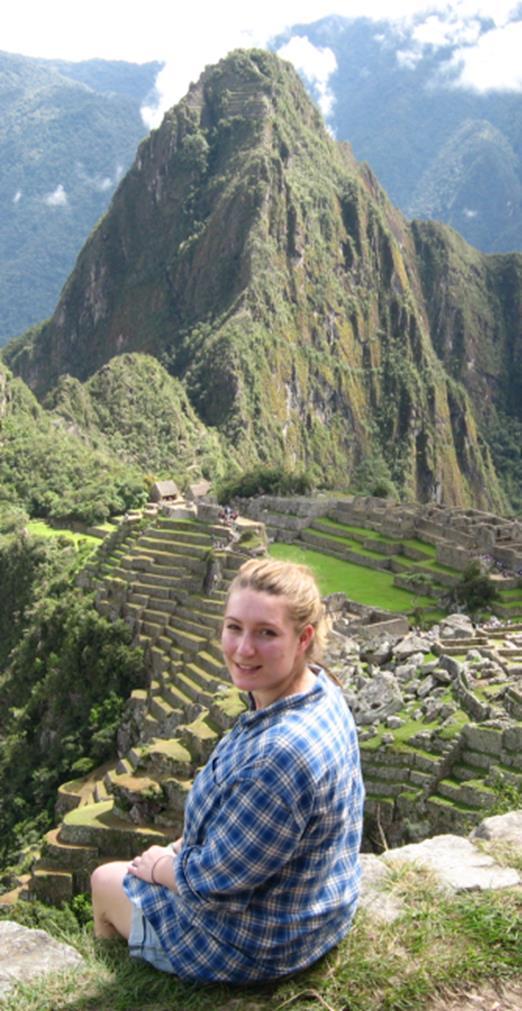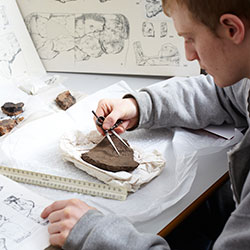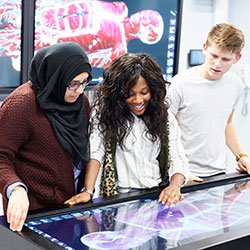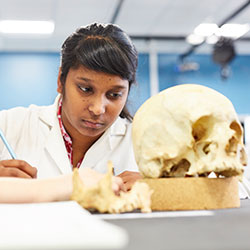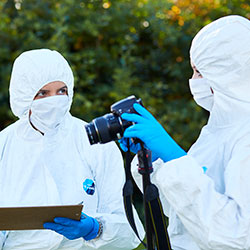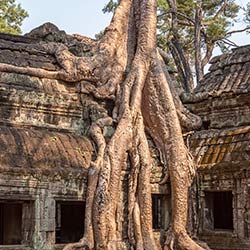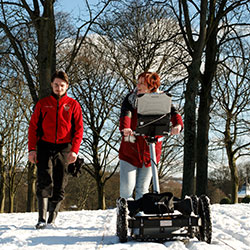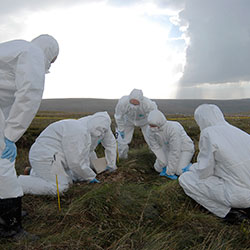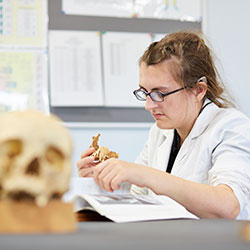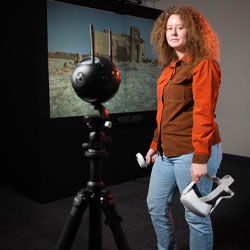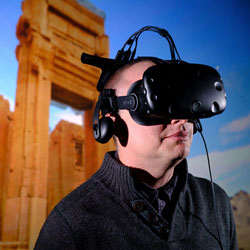Study archaeological and forensic sciences
Overview
Archaeology is the study of history though the discovery and analysis of our material past. Archaeologists investigate sites of interest in order to learn about the cultures, beliefs and behaviours of those who lived there.
Traditional archaelogy involves the physical digging of sites and the discovery and lab analysis of finds.
Modern archaeology combines these traditional methods with cutting-edge techniques and technology. Today's archaeologists use geophysics, LIDAR, drones, Google Earth, ground-penetrating radar and geochemistry to help them discover the secrets of the past.
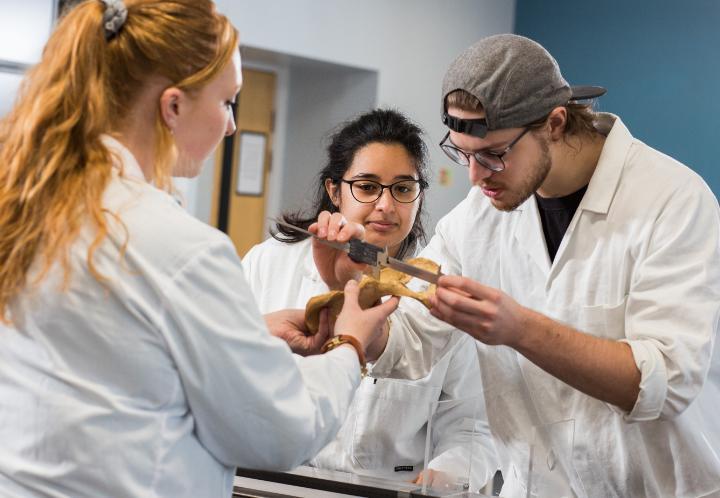
Queen's Anniversary Prize 2021
The Queen’s Anniversary Prizes recognise outstanding work by UK colleges and universities that shows quality and innovation and delivers real benefit to the wider world and public through education and training. The Prizes are the highest national Honour awarded in UK further and higher education. Prizes are granted by the Queen every two years.
We have been awarded the Queen's Anniversary Prize for Higher and Further Education for our world-leading work in developing archaeological technology and techniques and its influence on practice, policy and society.
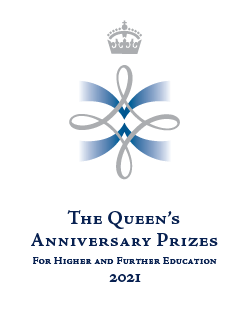
Archaeological and Forensic Sciences courses
Undergraduate courses
Postgraduate courses
Work placements
We have a well-established placement year which has been running for over 40 years. If you opt for a four-year course, the third ‘placement’ year enables you to gain work experience.
An academic member of staff oversees the placement process, to identify suitable placements and to assist you in making your application.
By the end of the placement year you will have gained valuable work experience relevant to your subsequent career, developed a range of transferable work skills, acquired a diploma to verify your experience, and hopefully bolstered your bank balance after a period of paid employment.
Types of employer
There are work placements with many kinds of ‘heritage’ and ‘forensic’ employers including:
- archaeological illustration and geophysics
- aerial survey
- cultural heritage management in planning departments and national agencies such as the National Trust
- education and archaeology (museums)
- field excavation and survey
- forensic science and biological anthropology
- post-excavation analysis and a wide variety of laboratory work
- sites and monuments work
In the past, students have had professional placements with organisations such as the research laboratories at the British Museum, the Isotope Laboratory at the University of Melbourne, and in similar institutions abroad. Students with an interest in fieldwork have worked for commercial field units and with County Archaeologists in planning departments of local authorities.
Locations
Although the majority of our four-year students are based on placements in the UK, an increasing number have work experience in Europe (recently in Austria, Ireland, Germany, and Portugal), and further afield in Australia, Canada, Japan, Peru, South Africa and the United States of America.
How to apply
Placement positions are limited, and there is an element of competition for the most popular or exotic ones. Your course performance is considered, and you are required to prepare a CV so that placement employers can interview to inform their selection.
Contact
If you want further details about our placement scheme, please contact Dr Jill Thompson j.b.thompson@bradford.ac.uk.
Placement students
Abbie's experience
Abbie did her placement at Machu Picchu in Peru.
"Having a fantastic time here in Peru as part of my Archaeology degree placement year. I've been working with Projects Abroad, a volunteer organisation just a few hours from the Sacred Valley, focusing on the Inca culture and history that is abundant in the Andes. We work with the local community, educating the children about their incredible history and hopefully inspiring them on an archaeological path.
Excavating in new terrain was very interesting as we used different exploration methods in the jungle where aerial photography is not possible. One of the highlights is visiting all the archaeological sites including the famous Machu Picchu. Seeing the restored and conserved sites compared with the Pre-Inca ruins we are working on up the mountain makes it easier to make the climb every day.
Before this I was on placement at Fishbourne Roman Palace in Sussex. A bit of a contrast but great experience too. Shadowing the curator gave me great insight into the behind the scenes aspect of the museum and I worked in different departments to get experience of all the jobs needed to keep the museum running such as archiving, conservation and dealing with the public.
I loved my placement and would definitely recommend it to people!"
